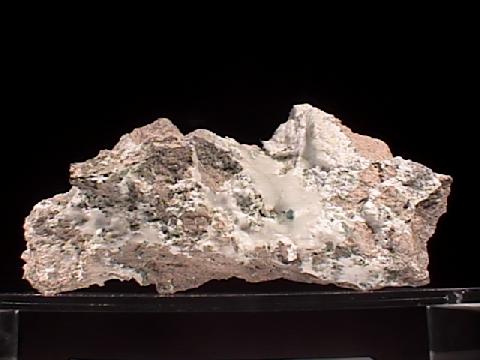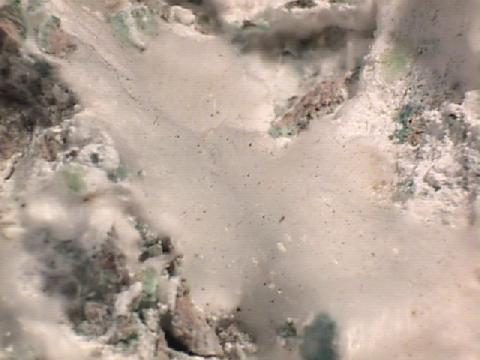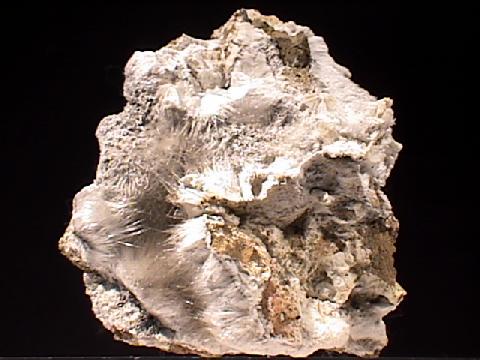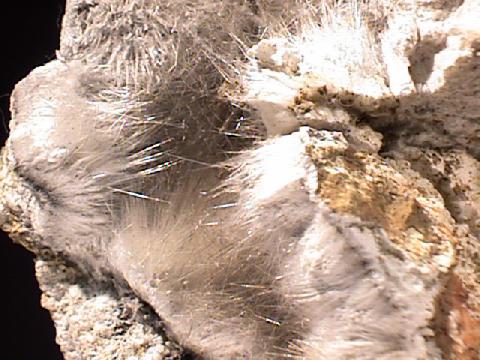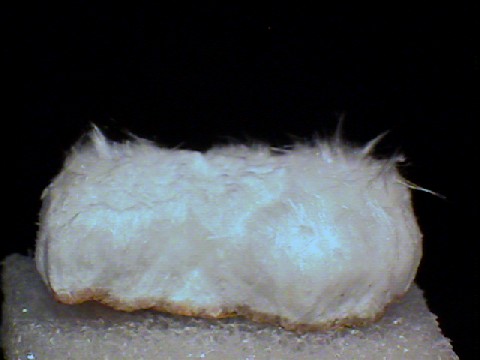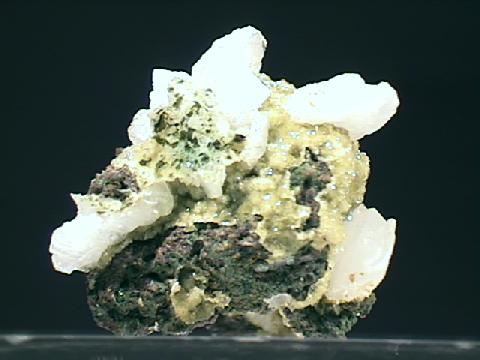
MORDENITE
Specimen mrd-3
$ 25.00
Dims: 0.6 x 0.6 x 0.6" (1.5 x 1.5 x 1.5 cm)
Wt: 12.3 g w/ specimen box
Kalama, Cowlitz County, Washington, U.S.A.
At least 10 small Mordenite blades rest on the brown host rock of this small thumbnail specimen. Several are broken and mostly incomplete, but at least 4 or 5 are intact and in good condition. The largest of these intact blades has a diameter of 0.3" (8 mm) and like all of the others, has a rather badly-defined orthohrombic bladed form- though their edges are sharp, they are quite uneven, as are their faces. All have a white coloration and a dull, nearly matte luster. The dark brown host rock is covrered with a very fine druse of what I believe are almost microscopic quartz crsytals. It is affixed inside a plastic specimen box with an adhesive putty.

